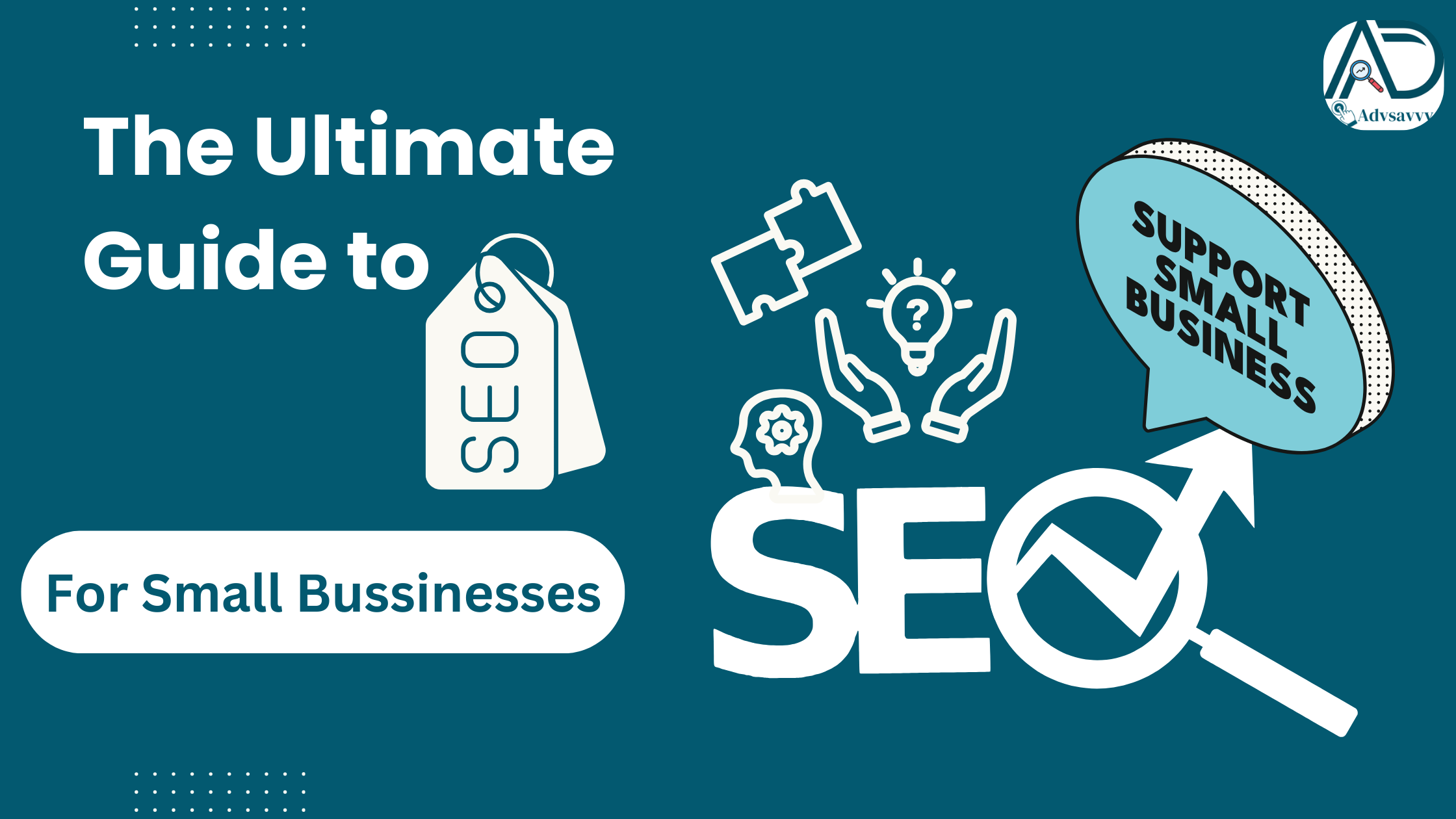In today’s digital landscape, having a strong online presence is crucial for small businesses. Search Engine Optimization (SEO) plays a vital role in ensuring that your business gets the visibility it deserves. This ultimate guide will walk you through the essential elements of SEO tailored specifically for small businesses.

What is SEO and Why is it Important?
SEO is the practice of optimizing your website to rank higher on search engine results pages (SERPs). For small businesses, effective SEO can mean the difference between being found by potential customers and being lost in the vast sea of the internet.
Key Benefits of SEO for Small Businesses:
- Increased Visibility: Higher rankings on SERPs lead to more organic traffic.
- Cost-Effective Marketing: Unlike paid ads, organic search traffic is free.
- Credibility and Trust: Users tend to trust businesses that appear on the first page of search results.
- Better User Experience: SEO involves improving website usability, which enhances user satisfaction.

Understanding SEO Basics
1. Keyword Research
Start by identifying keywords relevant to your business. Use tools like Google Keyword Planner, SEMrush, or Ahrefs to find keywords that potential customers are searching for. Focus on long-tail keywords, which are more specific and often less competitive.
Example: Instead of targeting “shoes,” aim for “women’s running shoes in [Your City].”
2. On-Page SEO
On-page SEO involves optimizing individual pages on your website. Here are key elements to focus on:
- Title Tags: Include your primary keyword and keep it under 60 characters.
- Meta Descriptions: Write compelling descriptions (under 160 characters) that entice users to click through.
- Header Tags: Use H1 for the main title, and H2/H3 for subheadings to structure your content.
- Image Alt Text: Describe your images with keywords to improve accessibility and SEO.
3. Technical SEO
Technical SEO ensures that search engines can crawl and index your website effectively. Key aspects include:
- Mobile Optimization: Ensure your site is mobile-friendly, as a significant amount of traffic comes from mobile devices.
- Site Speed: Optimize images and reduce server response times to improve loading speed.
- Secure Your Site: Use HTTPS to provide a secure browsing experience.

Creating a Local SEO Strategy
For small businesses, local SEO is crucial for attracting nearby customers. Here’s how to get started:
1. Google My Business (GMB)
Claim and optimize your GMB listing. Include accurate information such as your address, phone number, hours of operation, and high-quality images. Encourage satisfied customers to leave positive reviews.
2. Local Citations
List your business on local directories (Yelp, Yellow Pages) to increase visibility and credibility. Ensure your NAP (Name, Address, Phone number) is consistent across all platforms.
3. Localized Content
Create content that resonates with your local audience. Consider writing blog posts about local events, news, or collaborations with other local businesses.

Content Marketing for SEO
Creating valuable content is essential for improving your SEO. Here’s how to get started:
1. Blogging
Regularly publish blog posts on topics relevant to your audience. Use your targeted keywords naturally throughout the content.
2. Visual Content
Incorporate images, infographics, and videos to enhance engagement and improve time spent on your site.
3. User-Generated Content
Encourage customers to share their experiences through reviews and testimonials. This not only builds trust but also creates fresh content for your site.
Measuring SEO Success
Track your SEO efforts to determine what’s working and what isn’t. Use tools like Google Analytics and Google Search Console to monitor:
- Organic Traffic: Keep an eye on the number of visitors coming from search engines.
- Bounce Rate: Analyze how many visitors leave your site after viewing only one page.
- Conversion Rate: Measure how many visitors take a desired action (e.g., signing up for a newsletter).
Conclusion
Implementing a solid SEO strategy is essential for small businesses looking to thrive online. By understanding the basics of SEO, focusing on local optimization, and creating valuable content, you can significantly improve your online visibility and attract more customers.
If you need assistance with your SEO strategy, consider reaching out to Advsavvy who tailored to your business needs. Let’s help your small business shine online!
Anjali Mishra is the founder and CEO of Advsavvy, a top digital marketing agency in Delhi NCR. With expertise in SEO, social media marketing, PPC, and content strategies, Anjali Mishra leads the agency in delivering innovative, results-driven solutions for businesses. Focused on creating tailored campaigns, she is dedicated to helping clients achieve their online goals and stay ahead in the digital landscape.


